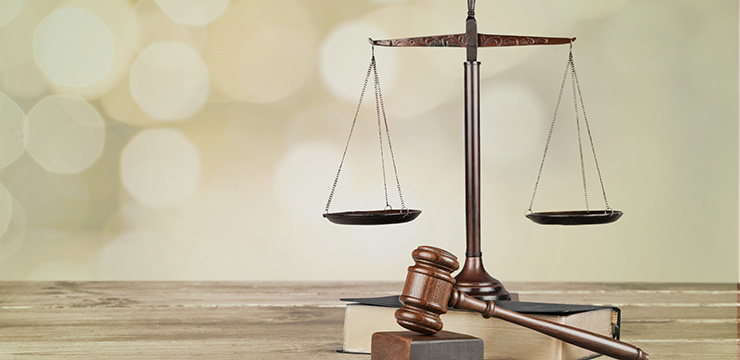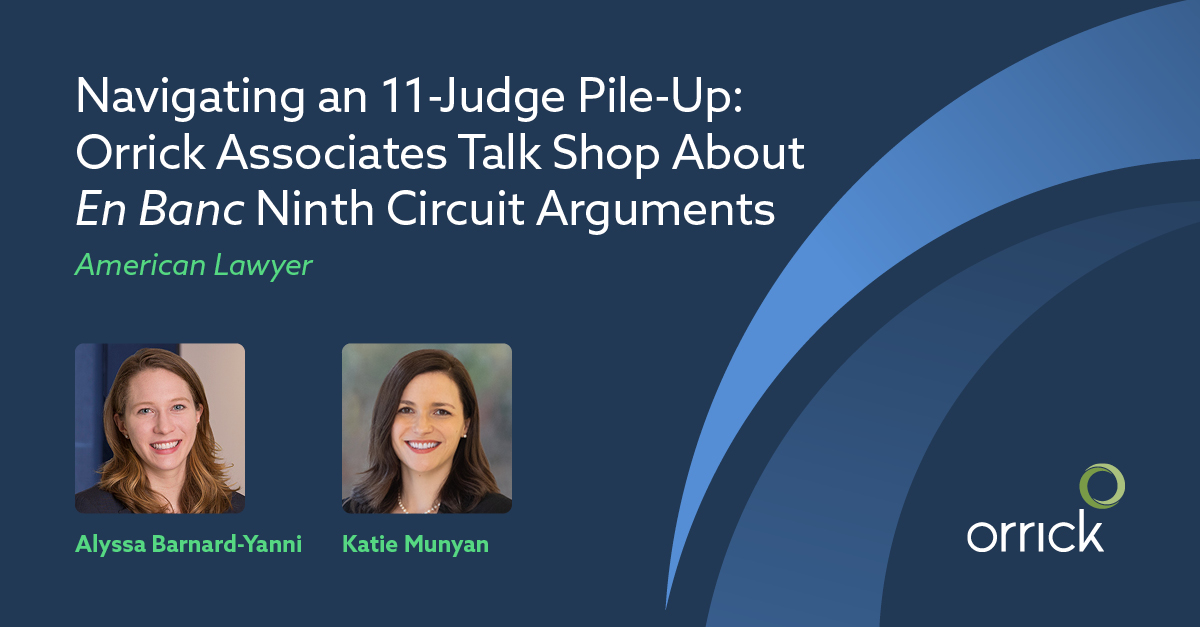PwC Secures Appellate Victory, Defeating Investor Appeal Over Audits for Bloom Energy IPO
1 minute read | November.17.2025

We have won awards and recognition from publications such as the Financial Times, which has recognized Orrick among North America’s top ten most innovative law firms for several years. Recently, FT recognized our work to secure access to justice for veterans, in a case where we persuaded the Federal Circuit to find that “Blue Water Navy” veterans who served during the Vietnam War are entitled to receive benefits for health issues linked to Agent Orange exposure. That victory opened the door for nearly 100,000 veterans to secure benefits after decades of government resistance. Our successes on behalf of Kite Pharma, Oracle, Credit Suisse, and the dietary supplement industry, as well as important pro bono cases for veterans, immigrants, and others have been highlighted in our 2021 “Appellate Hot List” ranking by The National Law Journal — our tenth time being named to the list. Additionally, our lawyers have earned numerous individual distinctions. Chambers USA ranks four of our partners among the top appellate lawyers in the country; Legal 500 has recognized nine of our lawyers in their appellate ranks. And our lawyers have garnered numerous other recognitions as well: multiple Law360 Rising Stars, one of the National LGBT Bar Association’s “Best LGBTQ+ Lawyers Under 40,” and one of the National Black Lawyers Top 40.
We have established ourselves as a marquee practice with "a deep bench, diverse cases, high-profile clients and a presence in the nation’s highest court." We represented clients ranging from Microsoft, DISH Network, and Oracle; to JPMorgan Chase, Morgan Stanley, and Credit Suisse; to Johnson & Johnson, Fresenius, and Gilead; and everything in between. And we win — sometimes against all odds. We saved DISH Network from a life-threatening injunction, Facebook from the Winklevoss twins, brokerage firms from crushing liability, and Bratz from Barbie. We saved the multi-billion-dollar market in imported copyrighted goods. We represent Oracle against Google in the "World Series of copyright cases." The reasons are simple:
Clients turn to us when they simply have to win an appeal. It’s more than just our track record. It’s our philosophy of devoting the utmost attention to every matter. When we represented a Silicon Valley stalwart in a case involving its computer code, we met with its programmers to understand its technology inside and out. When we defended a law allowing the police to inspect hotel guest registries, we not only uncovered the medieval history of regulating innkeepers, we rode along with the vice squad to witness firsthand just why the inspections are so important. Our clients know that their cause is ours.
We have a distinctive writing style that grabs judges from word one and keeps them reading, a knack for conveying our position as plain common sense, and persuasive oral arguments meticulously prepared and passionately delivered. Chambers USA 2016 described the mix as the "perfect combination of persuasiveness, intelligence, wit and deference" that it takes to "mastermind" unlikely victories. In the 2020 Chambers USA guide, one client said, "They're the best at turning mind-numbingly dense legal doctrine into elegant analysis that resonates with both trial and appellate courts."
Innovative strategies are our calling card. You almost never see an appellate brief that starts with an allegory. And how often does your opponent say that your brief reads like an engineer’s action adventure? When the satellite industry was besieged by discriminatory taxes in state legislatures around the country, we transformed an appellate strategy into a legislative strategy that defeated 53 of 54 bills introduced by competitors.
Clients come back again and again because we treat them — and the lawyers who lived with the case until appeal — like full partners. We take the time to learn what each case means to our clients’ businesses, and we give voice to their passion and concerns. It matters to us that other lawyers turn to us and that our competitors bring us in as co-counsel – including increasingly to provide “appellate eyes” on high-stakes cases long before an appeal is filed. These close partnerships are the heart of our practice. As one client put it to Chambers USA, "If I had only one call, it would be to Orrick. They offer pure skill and knowledge - anything you throw at them, they can handle. It's world class legal representation."
1 minute read | November.17.2025

2 minute read | September.15.2025

7 minute read | February.12.2026

1 minute read | January.20.2026
.png)